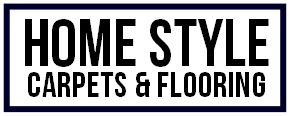What’s the best floor choice for a conservatory?
/Traditionally, conservatories were created to offer homeowners more sunlight, but today, they are used for a wide range of activities, from dining and working to reading, relaxing and keeping indoor plants. Depending on how you use your conservatory and your preferred look and feel, different floors may be better suited to this part of your property.
In the next passages, we’ll take a look at some different flooring choices, and the reasons they’re worth considering.
Carpet
Wall-to-wall carpeting can give your conservatory a relaxing and cosy feel. If you’re planning to use your space for unwinding with a little luxury, carpet can provide you with a comfortable environment with plenty of colour choices to pick from. For the most part, homeowners tend to opt for neutral tones that can provide a clean and modern appearance.
Always ensure the conservatory carpet you select has colourfast properties to ensure it doesn’t fade when exposed to sunshine over the warmer months of the year. For the best results, moving your furniture around periodically is also a wise move. Carpets may not be the best choice if your conservatory is adjacent to your kitchen, however, where spilled water or leaking appliances could cause lasting damage.
Laminate
Laminate flooring is an exceptional choice for a conservatory if you’re looking for a solution that’s simple to care for. Many conservatories lead out to garden areas, which can mean mud and grass get brought back indoors from time to time. Easy to clean, laminate is perfect for such situations, and it’s also cost-effective compared to the natural stone or wooden floorboards it’s made to emulate. As it’s so simple to maintain, it’s also an excellent choice if you wish to dine in your conservatory.
Luxury vinyl tile (LVT)
Luxury vinyl tiling can provide a smart and stylish floor for your conservatory, ensuring it has a contemporary look and feel. Completely waterproof, it’s also an easy floor choice to clean, and it can cope well with spillages from watering plants if you use your conservatory for sun-loving flora. Like laminate, LVT can resemble materials like timber and stone, and it comes at a fraction of the price of naturally sourced flooring.
Solid wood
Hardwood flooring is not an ideal match for conservatories. The conditions encountered by glass panelled rooms can often cause damage to real wood floors, with the timber boards contracting and expanding under sudden changes in temperature. If you have your heart set on a wooden floor in your conservatory, you might find engineered boards a possibility worth looking into. While you should always take advice from a flooring specialist prior to committing to a purchase, engineered boards are far better at coping with fluctuating temperatures than their solid wood counterparts.
Unlike hardwood, engineered boards feature a multi-layer construction that creates a stability not found in natural timber. While the topmost layer features a solid wood, those added beneath limit the movement of the natural wood that can be caused by alterations in temperature.
Overall, the best choice for a conservatory floor depends on the use and location of the room and personal taste.

